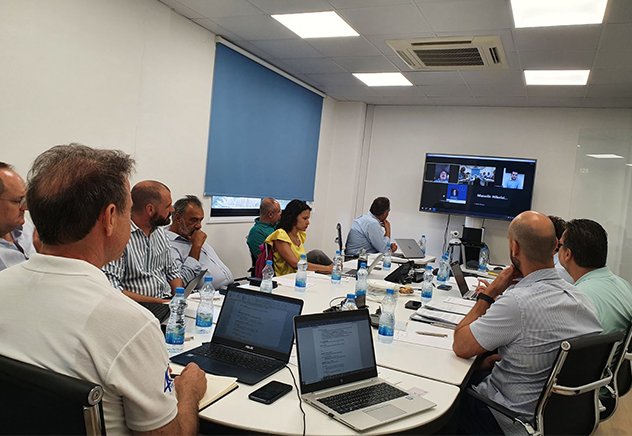
Limassol’s Path to Climate Neutrality: Frederick University proposes cold ironing for the port of Limassol

Limassol has been selected as one of 100 cities in the European Union to participate in the EU Mission Cities initiative, aiming for climate neutrality and smart city status by 2030. Frederick University serves as the scientific advisor to Limassol Municipality for the "Coastal and Port" thematic area, one of six key areas in Limassol’s action plan.
The University focuses on challenges facing the city's marine and coastal zones and contributes expertise to several priority areas driving Limassol’s transformation, including transportation, circular economy, clean energy, energy efficiency, environmental protection, urban planning, culture, and tourism.
As a dynamic coastal port city, Limassol experiences intensive social and economic activities that impact its unique coastal ecosystems, compounded by climate change and human influence. Frederick University promotes a comprehensive approach to managing these challenges, balancing ecosystem preservation with residents' quality of life and sustainable urban growth.
As scientific advisor to Limassol Municipality, Frederick University plays a critical role in developing frameworks and strategies to promote sustainable practices and inform policies advancing Limassol’s climate-neutral goals. On July 3rd, the University proposed the implementation of cold ironing at Limassol Port to help the port align with environmental standards and comply with European and international guidelines. Cold ironing, a clean energy technology, allows ships to use onshore electricity while docked, reducing emissions and noise pollution. This represents a significant step forward for Cyprus' marine and coastal environment.
The proposal was discussed at a meeting held at Frederick University’s Limassol campus. The meeting was attended by the Mayor of Limassol, Mr. Nicos Nicolaides, the University’s Vice Rector for Research, Development, and International Relations, Professor Mike Komodromos, members of Frederick University's academic and research staff, along with representatives from the Limassol 2030 - EU Cities Mission, the Cyprus Ports Authority, the Electricity Authority of Cyprus, the Cyprus Institute, and Limassol Port operators: DP World, P&O Maritime, and Eurogate Container Terminal.
During the discussion, attendees exchanged views on the requirements for cold ironing at Limassol Port, focusing on how ships could switch off their engines upon approach, avoiding emissions and noise pollution while in the port.
The next step involves submitting Frederick University’s proposal to the European Commission for funding.

